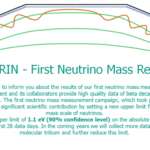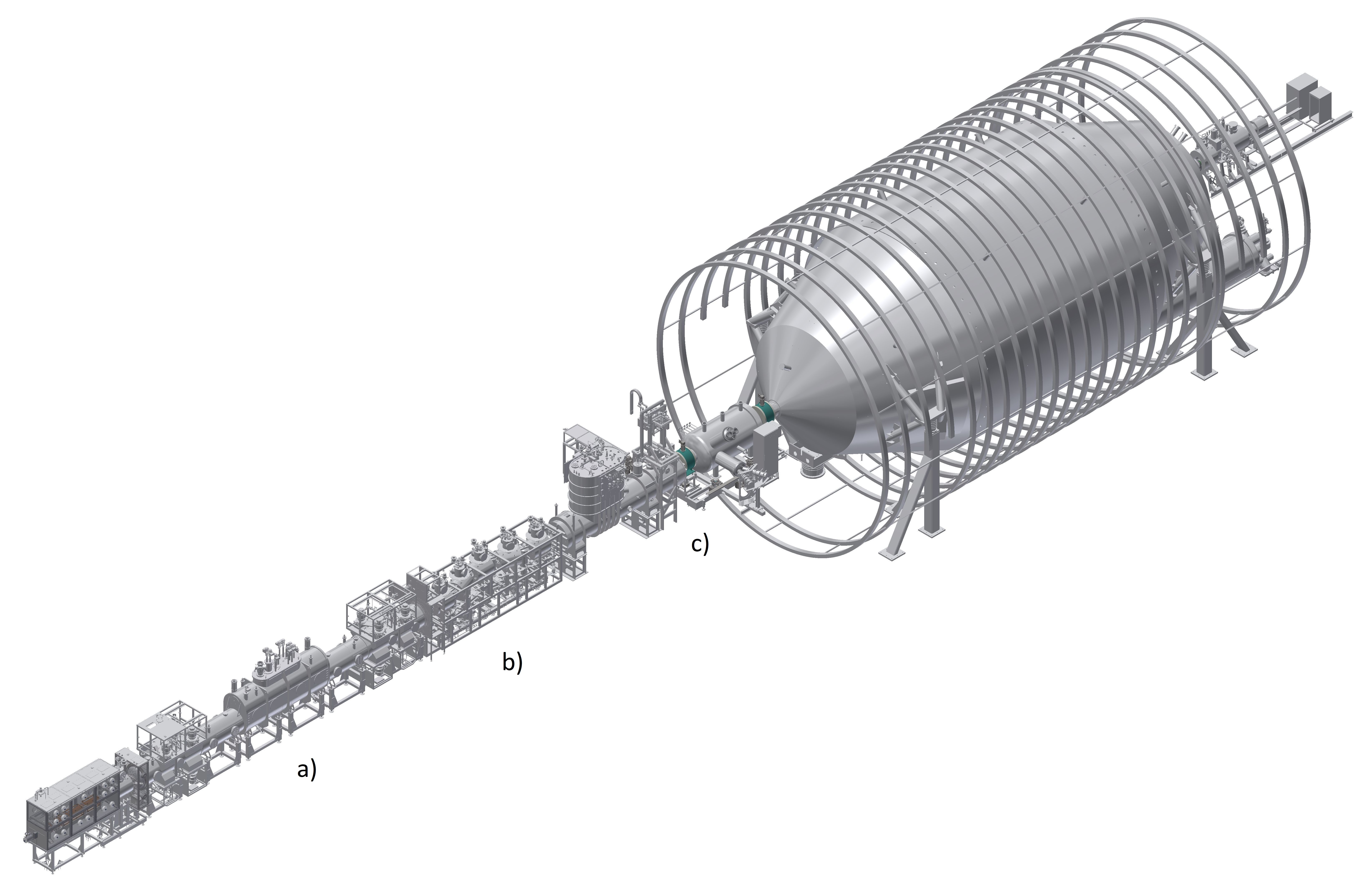
New Results for the Mass of Neutrinos
Neutrinos and their small non-zero masses play a key role in cosmology and particle physics. The allowed range of the mass scale has now been narrowed down by the initial results of the international Karlsruhe Tritium Neutrino Experiment (KATRIN).
The observation of neutrino oscillations two decades ago proved that neutrinos possess a small non-zero mass, contrary to earlier expectations. Accordingly, they play a prominent role in the evolution of large-scale structures in the cosmos as well as in the world of elementary particles, where their small mass scale points to new physics beyond known theories. Over the coming years, the most precise scale of the world, the international KATRIN experiment located at the Karlsruhe Institute of Technology (KIT), is set to measure the mass of the fascinating neutrinos with unprecedented precision.

Members of the international collaboration convene in the KATRIN control room at the Karlsruhe Tritium Laboratory during the spring 2019 neutrino mass measurement campaign. (Credits: Joachim Wolf, KIT)
In the past years, the KATRIN collaboration, formed by 20 institutions from 7 countries, successfully mastered many technological challenges in the commissioning of the 70 m long experimental setup. In spring this year, the big moment finally arrived: the 150-strong team was able to “put neutrinos on the ultra-precise scale of KATRIN” for the first time. The analysis of a first four-week measurement run in spring 2019 limits neutrino masses to less than approximately 1 eV, which is smaller by a factor of 2 compared to previous laboratory results based on multi-year campaigns. This demonstrates the huge potential of KATRIN in elucidating novel properties of neutrinos over the coming years.
This result was first released at the TAUP conference and was later officially presented during a colloquium on September 16, 2019, at the North Campus of the KIT. With lectures by Christian Weinheimer, Guido Drexlin, Kathrin Valerius, Susanne Mertens and Thierry Lasserre and a press conference, the impressive result was presented.
At the same time two articles were published on the arxiv: first operation with tritium and neutrino mass measurement results.
A full press release is available here: press release by KIT
Further information can also be found here: http://www.katrin.kit.edu/




